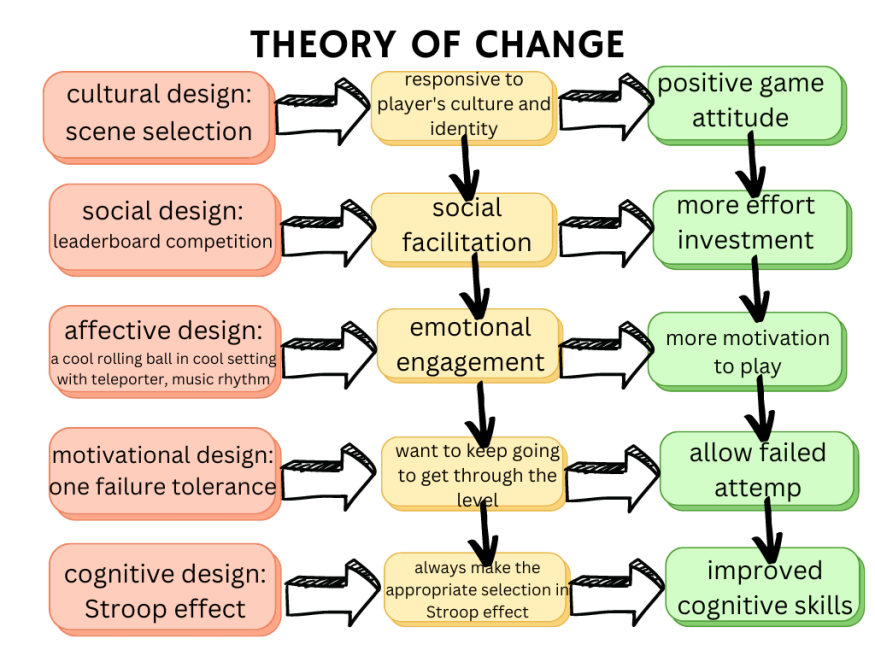
In the digital epoch where video gaming reigns supreme, the scene is subtly transitioning. The boundaries between amusement and enlightenment in the industry are increasingly becoming indistinct. Leading this paradigm shift are pioneers such as Jenny Yanzhi Wang and Jianhao Ma, the masterminds behind the cutting-edge game for impact, Super Rolling.
Their ambitious game project, Super Rolling, is inspired by the pioneering work of the NYU CREATE lab. This consortium of dedicated researchers has already released three digital games that effectively train children's cognitive abilities. Buoyed by their successes, Wang and Ma created Super Rolling and have been granted the ALT fellowship of NYU Steinhardt to secure the financial backing required to bring their vision to life.
Background
Let's take a step back to the 1930s, to a discovery that would fundamentally impact the field of psychology and, in time, game design. Psychologist John Ridley Stroop unveiled a fascinating psychological phenomenon, now known as the Stroop effect. This cognitive process describes the difficulty that individuals face when attempting to identify the physical color of a word that spells out a different color. Over the years, the Stroop effect has become a staple tool for assessing inhibitory control, a key executive function that governs our responses to various stimuli.
Wang's game design philosophy that underpins Super Rolling is deeply rooted in the recognition of gaming's potential as an effective educational tool. This viewpoint is supported by a wealth of research evidence suggesting that games can enhance cognitive abilities, especially when these games are designed with purposeful learning mechanisms. In the case of Super Rolling, Wang and Ma have ingeniously incorporated the Stroop effect - a well-established psychological test of cognitive control - into the core gameplay, enabling players to exercise and improve their cognitive abilities as they navigate the game world.
The Stroop effect, with its focus on inhibitory control, selective attention, and processing speed, provides the perfect cognitive workout, and it's this feature that sets Super Rolling apart from many other games. It is the blend of entertainment and cognitive training that is so characteristic of Wang's approach to game design. With every teleporter the player must navigate, they're challenged to make quick and accurate decisions under pressure. This not only tests their mental agility and sharpens their cognitive skills but also draws them deeper into the engaging game world that Wang has crafted.
Theoretical foundations: Theory of Change

Yet, Wang's innovative approach extends beyond merely incorporating a cognitive test into a game. Super Rolling is, above all, designed to be an immersive, engaging, and fun experience. Every design choice - from the high-stakes, rhythm-based challenges to the quick decision-making requirements - works together to create a game that players want to return to again and again. The game offers a compelling journey that players embark on, becoming active participants in their own cognitive development. This approach to learning is far more engaging than traditional methods, transforming what might otherwise feel like a chore into an enjoyable, rewarding experience. In blending elements of third-person, speed-running, and rhythm games, Wang and Ma have crafted a game that feels fresh and unique while offering an effective cognitive workout. The game's mechanics, built around the Stroop test, push players to hone their cognitive skills continuously. Yet, it's the blend of this with the engaging, immersive game world that truly represents the genius of Wang's design philosophy.
By intertwining cognitive development with gameplay, Super Rolling reshapes the boundary between education and entertainment. It encapsulates Wang's vision of using games as a vehicle for cognitive development, all the while providing an experience that is thrilling, engaging, and above all, enjoyable. This is the embodiment of innovative game design, demonstrating the transformative potential of games in education and personal development. Wang and Ma's work with Super Rolling serves as a testament to the power of well-designed, purposeful games in reshaping how we perceive and approach education.
Beyond its gameplay, Super Rolling will be distributed as apps on Windows and MacOS, and as a web game on browsers that support WebGL. This multi-platform approach ensures broader accessibility and takes into account the trade-offs between affordances and development challenges. Moreover, a larger screen is believed to significantly enhance the Super Rolling gaming experience.
Super Rolling isn't just another game in the crowded gaming market; it embodies a vision where learning and entertainment seamlessly intermingle. By transforming cognitive development into an engaging and enjoyable gaming experience, it seeks to reshape our perception of education and gaming. The creators invite you to try Super Rolling today and experience the thrilling blend of speed, rhythm, and cognitive development in a single immersive game.












